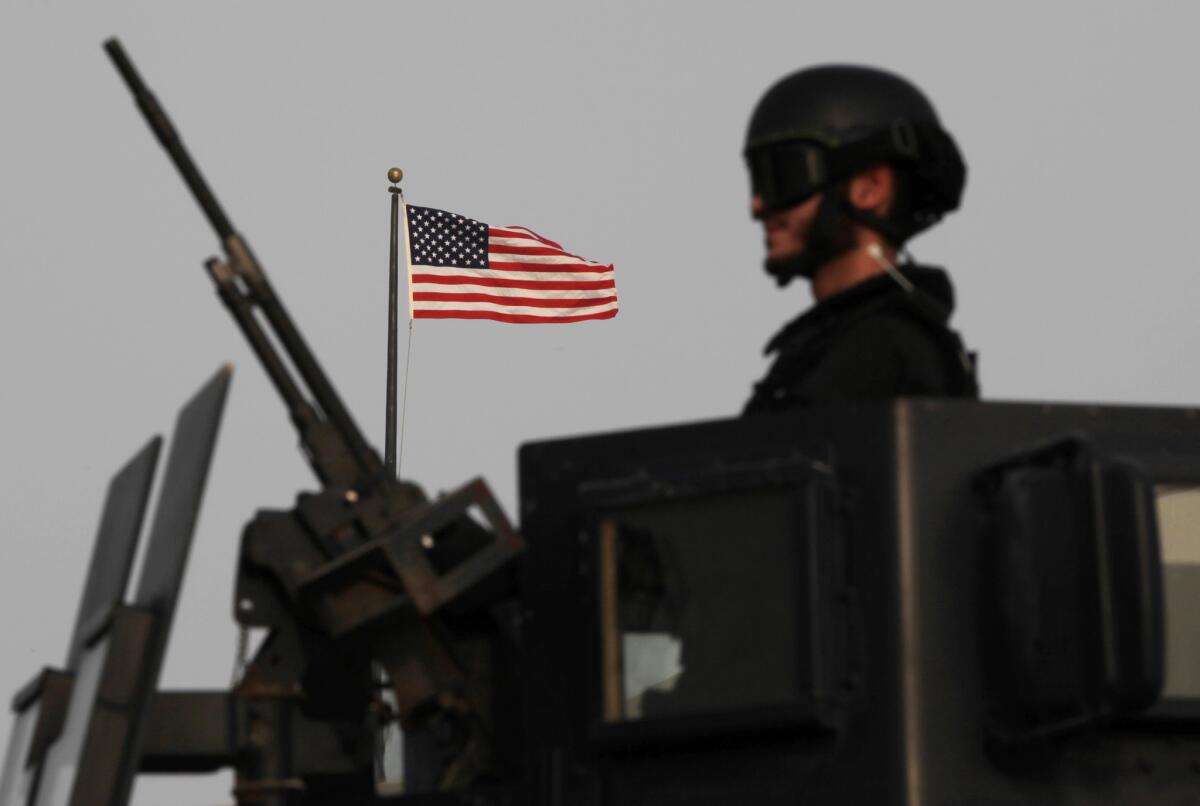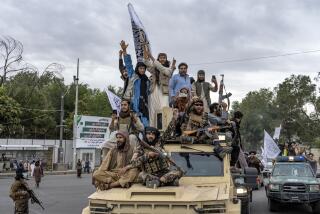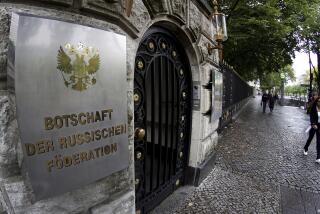U.S. extends closure of diplomatic posts in Muslim world

- Share via
The State Department said Sunday that it was extending the closure of 19 embassies and consulates in the Muslim world through next Saturday, but not solely because of heightened concerns about terrorist attacks in the region.
Jen Psaki, a department spokeswoman, said the posts would be closed through the end of the week because many of them were going to be closed anyway for much of the period because of the Eid holiday, which comes at the end of the Ramadan holy month.
She said in a statement that the move was also ordered because the department wanted to apply “an abundance of caution” in the aftermath of intelligence reports indicating the possibility of an attack from an Al Qaeda related terrorist organization.
“This is not an indication of a new threat stream, merely an indication of our commitment to exercise caution and take appropriate steps to protect our employees, including local employees and visitors to our facilities,” she said in the statement.
The posts affected by the extended closings are in Abu Dhabi and Dubai, United Arab Emirates; Amman, Jordan; Cairo; Riyadh, Dhahran and Jeddah, Saudi Arabia; Doha, Qatar; Kuwait; Manama, Bahrain; Muscat, Oman; Sanaa, Yemen; Tripoli, Libya; Antanarivo, Madagascar; Bujumbara, Burundi; Djibouti; Khartoum, Sudan; Kigali, Rwanda; and Port Louis, Mauritius.
In the following cities, posts that were closed today will reopen Monday: Dhaka, Bangladesh; Algiers, Algeria; Nuakchott, Mauritania; Kabul and Mazar e Sharif, Afghanistan; Baghdad, Basrah and Erbil, Iraq.
The department announced late last week that it was closing 21 posts because of the risks of an attack. Attention has centered on the group Al Qaeda in the Arabian Peninsula, based in Yemen, which is the only group in the region to show sustained interest in striking U.S. interests in the region.
ALSO:
Brazil court sentences 25 police officers in 1992 prison massacre
Stoli boycott targets Russian anti-gay law -- but hits Latvian vodka
Can Brazil fix mistakes from Pope Francis visit in time for World Cup?
More to Read
Sign up for Essential California
The most important California stories and recommendations in your inbox every morning.
You may occasionally receive promotional content from the Los Angeles Times.











